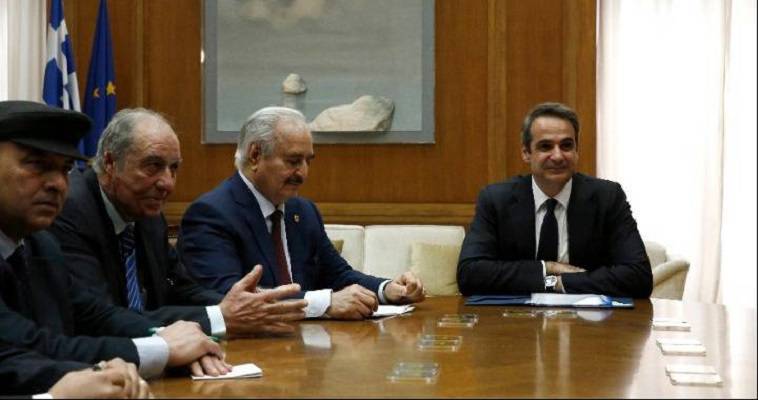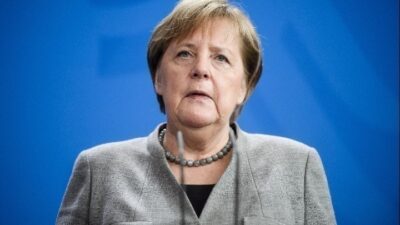Stavros Lygeros: Was Athens wrong in siding with Haftar? – The Greek-Turkish standoff is judged in Libya
26/06/2020
It is often said in public that Greece has chosen the wrong side in Libya. In fact, it is a direct challenge to the policy pursued by the Mitsotakis government. The irony of the case is that the relevant controversy is manifested in circles not only of the Ministry of Foreign Affairs, but also of the government itself!
This was a common secret, but it came to light with the statement of the Deputy National Security Adviser, Thanos Dokos, who seemed to adopt these doubts. Because the issue was of interest for the direction of Greek foreign policy, but also for the balances in the mechanisms that determine it, I undertook a relevant reportage.
Among other things, I contacted Thanos Dokos (24-6), who told me on the record that “Greece’s support for Haftar was a one-way street, regardless of the subsequent developments in the theater of the conflict in Libya.” He assured me that this was his view from the beginning, so the issue as concerns the Deputy National Security Adviser was setttled.
However, it was not settled overall, since the view that Athens made a mistake in taking a position in favor of Haftar is still circulating – as I mentioned above – even in circles that influence the formation of Greek foreign policy. In order to justify their point of view, they invoke the fact that the Sarraj camp has not only stabilized, but is also gaining ground, to the point of threatening Syrte.
Turkish military intervention in Libya
This reversal, however, did not occur from inside Libya itself. It arose due to the massive Turkish military intervention. It is a common secret that Erdogan sent thousands of Islamist (many of them jihadist) fighters, Turkish military advisers and large quantities of advanced weapons systems of all kinds. This decisive intervention by Ankara changed the course of the war.
However, the criterion for whether or not the Mitsotakis government had been correct in inviting Haftar to Athens is not the fact that at that time he controlled almost 95% of Libya and was besieging Tripoli. The criterion was and remains the fact that the Sarraj government, with the signing of the Ankara-Tripoli memorandum on the delimitation of maritime zones, has become a force hostile to Greece.
Lest we forget, through this memorandum it is not only Turkey that is trying to seize part of the Greek continental shelf-EEZ, but the internationally recognized Libyan government is also doing the same. This is what makes it an enemy power. The expulsion of its ambassador to Athens at that time was in fact a smaller retaliation compared to the magnitude of the challenge. Athens should have cut off diplomatic relations with the Tripoli government while sending a diplomatic representative to Benghazi.
Greece had no choice
It is, at least, perplexing that those involved in foreign policy planning claim that Greece wrongly chose the Haftar side. They behave as if Greece is any third country, which is not directly involved and therefore must side with the winner! Greece, however, is – whether it wants to or not – a country that is directly involved, and not on its own initiative. It became involved because of the Ankara-Tripoli memorandum. This practically means that Athens had no choice. Even if the Haftar camp then controlled 5% of Libya and not 95%, it would still have to ally with the opponents of the Sarraj government.
It was not, therefore, a preference for Haftar, but a defense of national interests. I would like to remind readers that Haftar, as well as the President of the Libyan Legislative Assembly, have stated that the Ankara-Tripoli Memorandum in question is illegal and that they will cancel it if they win the war. Criticism of the Mitsotakis government should be made not because it invited Haftar to Athens, but because it did not proceed immediately after the signing of the controversial memorandum, to practical and not just diplomatic support to the opponents of the Sarraj government.
Just the fact that some circles in both the Foreign Ministry and the government in retrospect are invoking Sarraj’s military successes to say that we should keep equal distances, is a sad and infallible example of national decline! It is outrageous that they are talking as if there is no Ankara-Tripoli memorandum that is seizing the Greek continental shelf-EEZ, as if Greece is simply a European country that is not affected by what is happening in Libya!
Looking for a logical explanation
These circles are neither ignorant nor fools. I am, therefore, obliged to seek an explanation for their obviously harmful attitude towards national interests. The only logical explanation is they do not havet the national interest in mind, but, rather, the interest of the United States, which is only interested in Russia not gaining a foothold in Libya. We can’t even talk about Western interests, since at least France has changed its stance. Even Italy does not want to see a Turkish protectorate “under its feet” (Libya).
As the situation unfolds, for Greece the war in Libya is gaining crucial national importance. From the developments there, the dynamics of the confrontation on the Greek-Turkish front will be affected to a great extent. If Erdogan wins in Libya, he will not only encircle Greece, but will also move from an advantageous position to the actual seizure of the Greek continental shelf-EEZ and beyond. On the contrary, if Erdogan flops in Libya, he will be forced to fold on the Greek-Turkish front as well.
It is clear that if the Sarraj side remains the internationally recognized Libyan government, the memorandum in question will become entrenched, even if Dendias declares that it is illegal and does not produce legitimate results. It is illegal, but unfortunately for Greece, as we will probably see soon, it can produce real results.
Time for an anti-Turkish Mediterranean alliance
At the point where things have reached, it is vital for Greece to abandon two traditional syndromes definitively and not just for the time being: First, military entrenchment within the Aegean. Secondly, understanding its foreign policy exclusively and unilaterally in EU terms. The European dimension is a given, but the events themselves have forced Greece in recent years to perceive itself as a Mediterranean power.
This process, however, is reminiscent of being in midstep, in the sense that it remains incomplete. The game in the Eastern Mediterranean is played on other terms. It is not limited to the classic post-war diplomacy of cautious steps, if not inaction, especially when Turkey uses the military tool systematically.
This practically means that the most effective way for Greece to defend its sovereign rights and at the same time to avoid war with Turkey is to take the initiative to form a Mediterranean (and also military) alliance with an indirect but distinct anti-Turkish tinge. It is not an initiative with a given successful outcome, but the conditions today are more mature than ever and it is definitely worth the effort.





